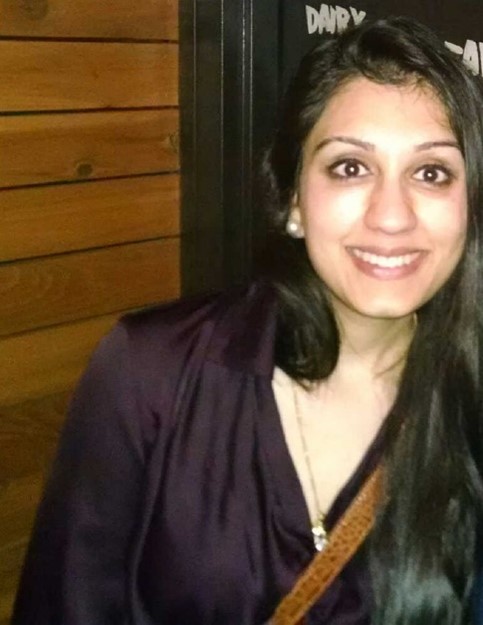ACC.22 Session | Merging Mentorship & Sponsorship: Build Your Own Career Path
ACC.22 took place this April in Washington, DC, during the beautiful and well-known cherry blossom festival. Many people, both nationally and internationally, and at various stages of their cardiology careers, gathered to discuss women in cardiology and how to go about building one’s own career pathway.
As an FIT, this was the first ACC conference since the pandemic began that I could attend in-person and converse with fellow women in cardiology. It was revitalizing to see so many female role models, mentors, and friends who are paving the road for women to continue to hold and grow into leadership positions in cardiology.
The session, Merging Mentorship and Sponsorship: Build Your Own Career Path took place in the Women in Cardiology Lounge on Sunday, April 3. Claire Duvernoy, MD, FACC, and John Erwin III, MD, FACC, moderated an inspirational and informative group of speakers including Kamala Tamirisa, MD, FACC; Gina Lundberg, MD, FACC; Toniya Singh, MD, FACC; and Sarah Rosanel, MD, who highlighted the role of mentorship, the power of sponsorship, and the nuance and importance of coaches.
My key takeaways:
- Skill Development: A mentor is there to support and encourage, maximize one’s potential, and develop skills to improve one’s performance and growth to become the person one wants to be.
- The relationship is power-free, mutually beneficial, and can encompass the person as a whole.
- Ask yourself is this mentor a good fit with the question: “How can this person advise me?”
- Career Development: A sponsor is there to endorse, enable and drive advancement, and are visible champions to promote one’s strengths and influence connections to reach the goals one wants.
- The relationship is long-term, mutually respectful and beneficial, and career goal oriented.
- Ask yourself is this sponsor a good fit with the question: “What can this person do for me?”
- Person Development: A coach is there to increase one’s insight by assisting one in identifying and overcoming obstacles, and improving performance to open new possibilities.
- The relationship is one-sided, short-term, non-judgmental, and encompasses all areas of one’s life.
- Ask yourself: “Am I ready to explore myself and grow?” “Do I know what I want?” “Do I need help reaching my goals?” “Where should I go from here?”
- These relationships guide the next steps which may be applying for cardiology fellowship, finding a job as a FIT, becoming involved early in one’s career, and paying it forward mid to late career.
Smadar Kort, MD, FACC; Heather Johnson, MD, FACC; and Lauren Weber, MD, FACC, were among the panelists providing strong pointers, such as that mentors are not only for career advancement but also play a large part in the person as a whole – meaning they offer guidance and emotional support for one’s well-being. Mentorship and sponsorship are spectrums from faith, family and friends, to colleagues, role models, and national leaders. It includes a range of behaviors and levels of commitment from strategizer to connector, opportunity giver to advocate. And most importantly, these roles cross genders with #SheforShe and #HeforShe.
This session was empowering as it acknowledged the current limitations that many women face in different stages of their cardiology career and discussed strategies in a community to support each other and build these relationships. I took away valuable insight and connections to start the next step of my journey and career path.
A COACH talks TO you
A MENTOR talks WITH you
A SPONSOR talks ABOUT you
“Be the river that cuts through the rocks. Make your own way.”- Kamala Tamirisa MD, FACC
This article was authored by Toral Patel, MD.
This content was developed independently from the content developed for ACC.org. This content was not reviewed by the American College of Cardiology (ACC) for medical accuracy and the content is provided on an "as is" basis. Inclusion on ACC.org does not constitute a guarantee or endorsement by the ACC and ACC makes no warranty that the content is accurate, complete or error-free. The content is not a substitute for personalized medical advice and is not intended to be used as the sole basis for making individualized medical or health-related decisions. Statements or opinions expressed in this content reflect the views of the authors and do not reflect the official policy of ACC.
